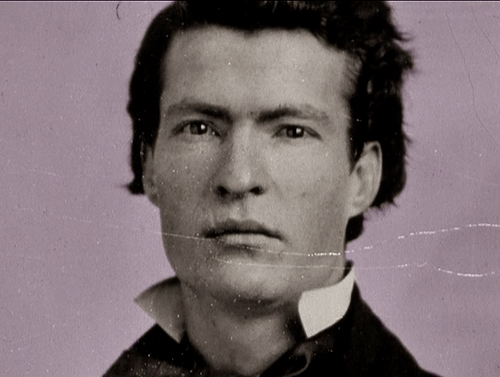
In a letter to his wife, Olivia, Samuel Clemens (Mark Twain) conveys his grief over the recent death of his twenty-three-year-old daughter, Susy. Susy had suffered from mental instability, seemingly triggered by intense homesickness while she was a freshman at Bryn Mawr and had been receiving treatment at the Clemens’ home in Hartford. Twain was traveling on a lecture tour that he deemed necessary to repair his precarious financial situation. Olivia was still at sea with the Clemens’ other two daughters, Clara and Jean, at the time of Susy’s death, and Twain writes to her before she has received the news.
Guildford
21 August 1896
Oh, poor Livy darling, at 8 tomorrow morning your heart will break, the Lord God knows I am pitying you. Smythe & I have done what we could — cabled Mr. Rogers to have Dr. Rice at the ship and keep all other friends prudently out of sight — for if you saw them on the dock you would know; and you would swoon before Rice could get to you to help you.
Hour by hour my sense of the calamity that has over-taken us closes down heavier & heavier upon me; & now for 48 hours there is a form of words that runs in my head with careless iteration — without stop or pause — “I shall never see her again, I shall never see her again.” You will see the sacred face once more — I am so thankful for that.
But though my heart break I will still say she was fortunate; & I would not call her back if I could.
I eat — because you wish it; I go on living — because you wish it; I play billiards, and billiards, & billiards, till I am ready to drop — to keep from going mad with grief & with resentful thinkings.
You will find my health perfect — for your sake — when you come.
I know where you will be, tomorrow and Sunday, & in spirit I shall be at your side & taking step by step with you.
Give my love to Clara & Jean. We have that much of our fortune left.
I love you with all my whole heart.
SAML
From The Love Letters of Mark Twain. New York: Harper & Brothers, 1945. pp. 323
FURTHER READING
Read chapters of Mark Twain’s autobiography, published in The North American Review in 1906, shortly after the death of his wife, Olivia.
Read The Wall Street Journal’s imagining of how a 2014 financial writer would have covered Mark Twain’s unsuccessful 1880s business ventures.
At The New Yorker, read an excerpt of Poking a Dead Frog: Conversations with Today’s Top Comedy Writers by Mike Sacks, in which he interviews George Saunders about the continuing relevance and influence of the works of Mark Twain.


